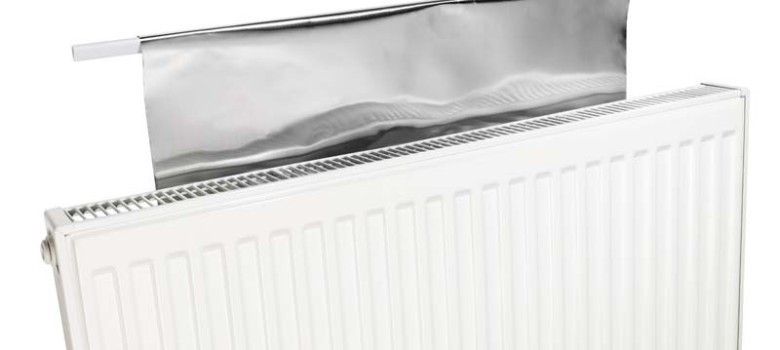
It is a popular question – what can I do to make my heating system more efficient, without spending money to replace my boiler?
Unfortunately, there is no getting around the fact that boilers are expensive, and unless you have a very old boiler, it may not make sense to rip out your current boiler and upgrade to a new condensing model.
There are a number of little things you can do however, to ensure that your heating is as efficient and effective as possible – without spending a fortune!
Ensure you are on the cheapest tariff
Before you start even looking at the heating system – first things first, you need to check you are on the cheapest energy tariff. Uswitch is just one of the comparison companies, but it makes the whole process of swapping to a cheaper tariff incredibly easy (they basically do it for you) – so we recommend that you do this before following any of our other tips!
Get More from your Radiators
Radiator reflectors like Radflek are very cheap and easy to install. They are simply fitted behind the radiator and ensure heat is not wasted through the external wall, and as much heat as possible is reflected back out into the room. You can get yourself a pack for less than £20, so it is a straightforward way to get that little bit extra out of your heating system. Even better, GreenAge readers can get an exclusive 20% discount using offer code TGA20.
Radfans are another way to optimise your radiators. They are little units that sit on top of your radiator and blow the warm air around the room. They have a small built in fan that kicks in when the air around the unit gets warm. Simply letting the warm air diffuse around the room means the room takes longer to heat, and you end up needing a larger radiator to do the same amount of work.
Bleeding radiators
One of the easiest ways to improve the efficiency of your heating system is to bleed the radiators. This process involves releasing any air trapped at the top of the radiator – by doing this, hot water can now fill the entire radiator, so the whole thing will get hot. If you notice there is a discrepancy between the temperature at the top and the bottom of the radiators, this is a pretty good sign that it requires bleeding.

Over the years, most central heating system will fill with all sorts of sludge, rust and other debris. A power flush is the process of cleaning out all this debris from the system, which will help ensure that the heating system works more efficiently. The aim of the power flush is to help restore full circulation of the heating system, to allow warm water to easily travel through the pipework, radiators and boiler. As a result of getting this done, the radiators will warm more quickly and they should get warmer than before; they should also no longer have cold spots on them. Power flushing the central heating system leads to a more reliable and more efficient heating system which means you should be able to heat the home for less!
Install a Magnaclean Filter on your central heating system
A Magnaclean filter is a device that is installed on the return pipework of the heating system. The filter works by swirling the incoming water (heading back to the boiler) around a really strong magnetic core. The magnetic core attracts all the ferro-magnetic debris (read rust!), catching it before it enters the boiler itself.
If you have just power flushed the system, then it really makes sense installing one of these, since it will help keep the system sludge free.
Adding Inhibitor to your hot water system
Inhibitor is a liquid inserted into your central heating system that that slows down the reaction of the metal radiator with the water running through it. This oxidisation is what causes lots of the sludge in the radiator, so by using inhibitor, you can slow the rate of this reaction and help keep your system running in tip top condition!
Other central heating additives include things like Endotherm, which works by reducing the surface tension of water. This change essentially reduces the size of the bubbles that form in the boiler feeder tube helping to maximise heat transfer across the heat exchanger. This means that every unit of gas goes on to produce more hot water and therefore it should result in lower energy bills. The actual effectiveness of these products is still disputed, but at only £20 – £30 a pop – even a 1% saving in energy bills would still cover the cost of buying it in just a couple of years (they do say you can expect to see savings of 10% plus though!)
Heating Controls
Good quality heating controls really make a difference – in some cases actually saving you more money than a new boiler! Get yourself a good, easy to use thermostat and thermostatic controls for your radiators (known as TRVs). You might also want to consider an intelligent heating control system such as the Heat Genius solution. Many of our customers have come back to us citing savings of 30% or more resulting from the installation of such systems – since they give you fine (remote) control over your heating.
Condensing Boiler
Getting a new boiler is sometimes the best option. A modern boiler can be up to 90% efficient and you can get £270 cashback on the Green Deal, as well as substantial finance towards the installation costs.
If you do decide to replace your existing boiler with a new one, we really recommend getting a power flush at the same time, as you don’t want the sludge and other debris reducing the effectiveness of your new investment!
As a final point, if you do decide to go for a new boiler, remember, that there is no reason why you can’t use the tips above to make your gas bills even lower!
Think we missed something? Do you have a different opinion?
Comment below to get your voice heard…












This article is very informative – I am umming and erring since I am not sure I can afford to install a boiler outright, so I will use some of these other tips first and see how I get on.
These are really useful tips! I want to see if I can eek out another winter before replacing my boiler.
It is not a bad thing waiting until it dies except if your existing boiler is very old. Some boilers are running at less than 65% efficiency, while a new boiler may run at 90%+ efficiency so the energy savings from installing the replacement means that you shouldn’t delay!
I like the idea of the inhibitor, but how exactly do you add it to your heating system? My boiler really is on its last legs so anything that might eek another couple of years out of it would be great!
Can you use different gas to make boilers more efficient?
Does painting a radiator a dark colour help?